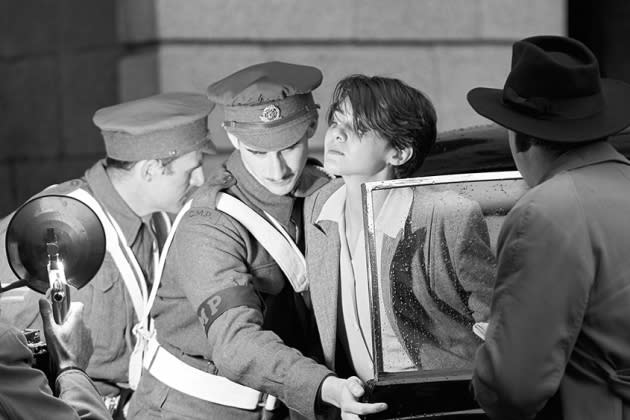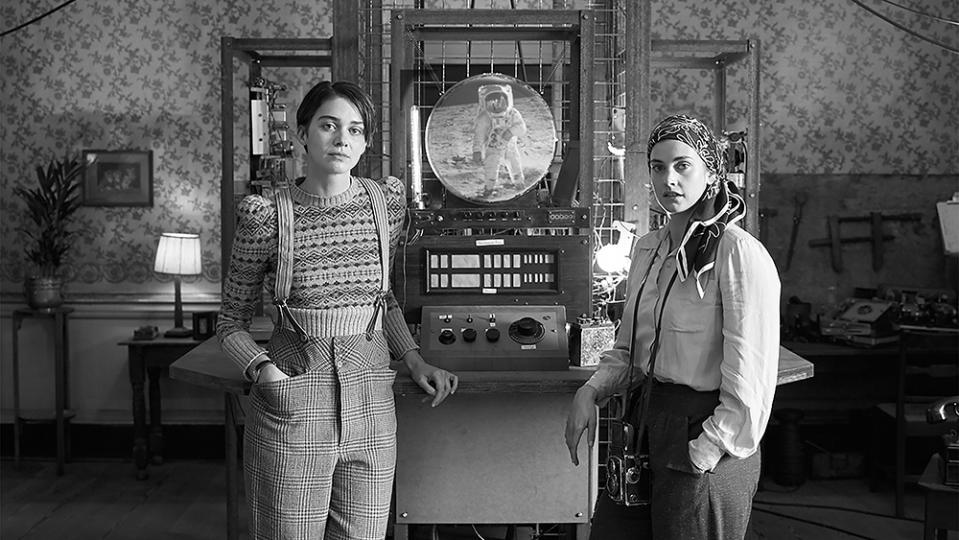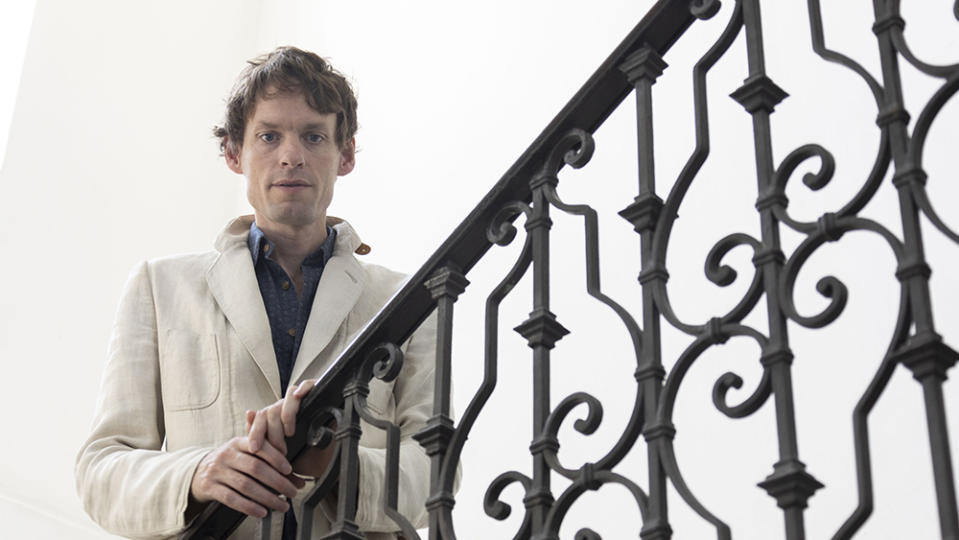Starring ‘The Witcher’s’ Emma Appleton, in ‘LOLA’ Ireland’s Andrew Legge Listens in on the Future

In Andrew Legge’s feature debut ‘LOLA’ you don’t have to time-travel in order to see the future. Two sisters create a machine that can intercept broadcasts from the forthcoming decades: It’s 1941 and they can already listen to Bowie. But World War II soon puts their invention to a much more sinister use.
Following its Locarno bow, black-and-white ‘LOLA’ will be shown at the Edinburgh Intl. Film Festival. A Cowtown Pictures production, it was co-produced by ie ie productions. Bankside Films is handling international sales.
More from Variety
'Tommy Guns' Review: A Sinuous, Surprising Military Drama Wrestles With Portugal's Colonial Legacy
Director Jeff Rutherford on His Feature Debut, Locarno Player 'A Perfect Day for Cairbou'
Legge played with a similar concept in his short “The Chronoscope,” but there was one significant difference, says the Irish director.
“The machine was similar, but it looked into the past. Which is interesting too, but you are just getting the information. I changed it to the future because I felt it gave me more options.”
Despite staying put, the sisters – played by Emma Appleton and Stefanie Martini – can still influence current events based on what they can glimpse. As the conflict between them keeps escalating, the world around them keeps burning. And they need to make their own choices.
“Knowledge is power. You don’t have to go anywhere – just knowing these things is enough. But they both have different ideas about how to use this technology,” says Legge, noting Appleton’s Thomasina’s “slightly fascist tendencies” exposed by the machine.
“The other sister, Martha, is more emotionally intelligent. She realizes they are going down the wrong path.”
She is also an aspiring filmmaker, determined to constantly document their existence, providing “LOLA” with its handcrafted look.
“This film is a message,” notes Legge, who wanted it to look “spliced together” and shot a lot of material on a 16mm spring-wound Bolex. With LOLA itself also a relatively simple creation, built out of the things the sisters had salvaged or had access to.
“If you look at the sequence with little girls at the start – who are my own daughters – I developed the film stock myself. I added boiling water and it caused the emulsion to break. You get this mosaic of grain, which makes it easier to combine new scenes with archive footage, but I also find it quite beautiful.”

Credit: Locarno Film Festival
The relationship between humans and the machines they create is something that Legge has already explored in the past, for example in “The Girl with the Mechanical Maiden” – an acclaimed short featuring Dominic West as an inventor who builds a mechanical wet nurse for his child following his wife’s sudden passing.
“I love weird technologies, but all the films I have made were period stories. [In the past] people used to be much more optimistic about what technology can bring. Now, we became a bit anti-science because we have seen it do horrible things,” he says.
Legge, who co-created the story with “Tell it to the Bees” duo Henrietta and Jessica Ashworth, ultimately writing the script with Angeli Macfarlane, embraced the challenge of focusing on female protagonists.
“Back then, women used to be brought up in a more rigid way. A lot of them didn’t go to university, they were denied that access. I loved the idea that here, they were getting their culture from a whole different era, listening in on the future,” he observes.
“Art does change you a bit. The first movie I saw was probably ‘E.T.’ and it was just astounding. I could imagine someone in the 1940s being blown away by seeing Bowie, who was doing something completely different and alien with music,” adds Legge, also praising the score by musician Neil Hannon, who will soon provide songs for the upcoming Timothée Chalamet starrer “Wonka.”
Legge will take another look at the 1960s in his upcoming film. He also intends to keep telling stories about the sisterly bond, mentioning Palme d’Or winner Julia Ducournau’s coming-of-age horror “Raw” as an interesting example of such complex dynamics.
“She said that when you show siblings on screen, you can do more. Otherwise, it would be harder to keep them together. If they were friends, one of them would just run away!”

Credit: Locarno Film Festival / Ti-Press / Massimo Pedrazzini
Best of Variety
From 'The Sandman' to 'Blonde': Books Made Into Movies and TV Series That You Should Read
Jennette McCurdy's Provocative Book 'I'm Glad My Mom Died' Is Already a No. 1 Bestseller
Sign up for Variety’s Newsletter. For the latest news, follow us on Facebook, Twitter, and Instagram.


